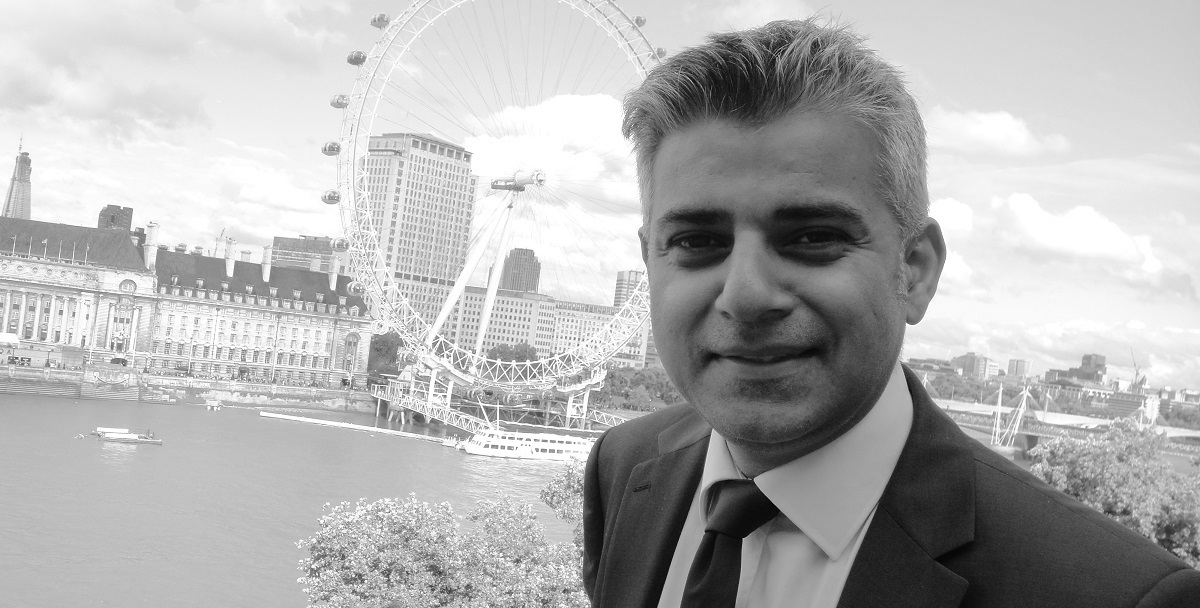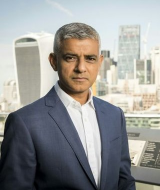Sadiq Khan: “This city has been the backdrop to my life”
First published in December 2013. One of my earliest memories is sitting at the front of the top deck of the 44 bus with my brother Tariq as it wound its way from Tooting in South London, to Battersea and across the Thames....
First published in December 2013.
One of my earliest memories is sitting at the front of the top deck of the 44 bus with my brother Tariq as it wound its way from Tooting in South London, to Battersea and across the Thames. We’d spend half the time looking down the screen to the driver below, and laughing every time he looked up and caught us. Then when it reached its destination at Victoria, we’d run down the steps and join the driver, my dad, for a quick cup of tea on his break before heading back up the stairs to start again.
We were never off buses when I was a kid – whether to accompany my mum shopping or visiting friends, exploring London or driving around with my dad. While my commute took me onto the tube for university, to many of London’s courts and police stations as a young lawyer and from Tooting to Westminster as an MP, there’s still nothing better than the feeling of sitting on the top deck of a London bus as it weaves around the city.
London. The city that has been the backdrop to my life and like millions of Londoners, has made me the person I am today. It is a tolerant, diverse and liberal city where anyone from any background can find a home. When my father first moved to London from Pakistan in the 1960’s, the capital was a place of real opportunity. My dad had the opportunity to get a steady job and my family to get a warm and safe council home in Wandsworth. By working and saving hard he was eventually able to put aside the money to buy his own home. My siblings and I benefited from the opportunity of a top class state education and were able to go on to university and onto successful careers ourselves. In turn, we have been lucky enough to be able to buy our own family homes, in the same part of London that we grew up in and send our own children to the same state schools we studied in as children.
To me, my family story sums up what London is all about: countless opportunities to make a better life for you and your family provided you work hard and get on. But I often wonder whether my family would have enjoyed the same opportunities if they moved to London today rather than 40 years ago?
London is a city facing big challenges. Population growth is putting huge strain on our housing, transport and infrastructure. The increasingly globalised economy means that our businesses no longer compete just with those in Birmingham or Manchester, but with firms in Shanghai, New York and Berlin. And most worryingly, rising numbers of Londoners are being left behind by our city’s success, as inequality widens and poverty is growing.
With 2.5 million people out of work and almost 1.5 million under-employed, would my dad have been able to find a stable and secure job had he moved to London today? With almost 500,000 on waiting lists for council homes in London, would my family have been able to get a council home? Forced to live in private rented accommodation, where rents are rising by ten per cent a year, would my parents have been able to save for a deposit for a home? Would my siblings and I have had the same opportunities growing up with £6 of every £10 earned spent on rent? Would I have gone to university and studied law with fees of £9000 a year? Would my brother have been able to get an apprenticeship now like he did when he was growing up? Forget waiting until I’m 38, as the average first time buyer in London has to today, would I have ever been able to afford a home for my family in Tooting?
The story of our city is in real danger of becoming ‘a tale of two cities’. One London is an international playground for the wealthy, with the best restaurants, theatres and galleries in the world, accessible to a lucky few. The other is an increasingly difficult place to make ends meet for the vast majority of Londoners, with real wages falling, the cost of living rising and opportunities increasingly rare.
And this growing inequality is stopping London’s economy from fulfilling its true potential. Last year, for the first time ever, the Confederation of British Industry (CBI) cited the housing crisis as the biggest barrier to growth for London businesses. Multinational companies like Vodafone are struggling to attract the talent they need for stable and secure £70,000 a year jobs – nearly three times the average UK salary – because of the high cost of living and lack of affordable housing.
Our businesses are also paying a high price for our failure to give young Londoners the skills they need to succeed in life. Three out of five London firms are struggling to hire workers with the technical skills they need and more than half say London school leavers just don’t have the skills they need from their workforce.
It is true that London needs to do more to compete with the other global cities and emerging economic centres, but our businesses are telling us that the best way we can help them is by fixing our problems closer to home.
But despite the challenges, London isn’t broken. Far from it. We have a booming economy that competes with global cities around the world. The Olympic Games showed that Londoners are capable of wonderful achievements when united by common ambitions. We have a unique mixture of 4 Our London art, culture, sport and food, with the best bits plucked from the many cultures who have settled here over centuries. And despite being truly metropolitan, London retains a strong sense of identity and community – as anyone who has met a proud Londoner will tell you.
I have no time for those who say the problems London faces are insurmountable or refuse to look at radical solutions because they are too difficult. I know from my years in government, years as a MP and years as a London councillor that it is possible to fix any problem if you work in collaboration with all your partners, and match the scale of your ambitions to the challenges you face.
The conditions are right in London for bold action. It is in the common interests of Londoners, businesses, councils, government and the mayor to fix the issues we have highlighted over the decade ahead. We must not waste this opportunity. I want my daughters to have the same opportunities in this city that my parents, siblings and I enjoyed; the opportunity to make a better life for themselves and fulfil their potential.
Sadiq Khan edited the Fabian pamphlet Our London: The capital after 2015 in December 2013. You can read it in full here.

